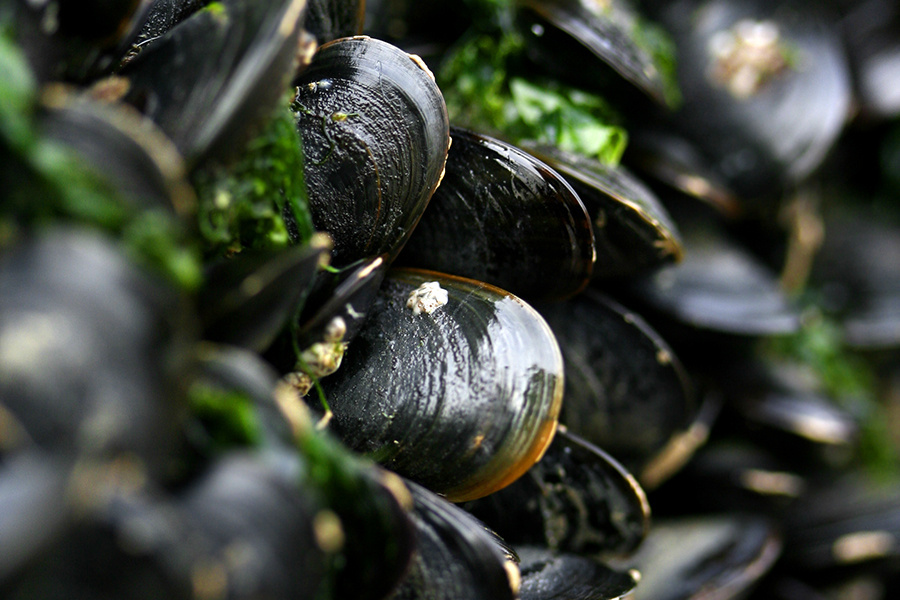Interactions between ocean acidification and metal contaminant uptake by Blue Mussels
Assessing ocean acidification as a driver for enhanced metals uptake by Blue mussels (Mytilus edulis): implications for aquaculture and seafood safety
Why we care
Ocean acidification causes changes in the chemistry of stressors such as metals and may affect both the susceptibility of these animals to the contaminants as well as the toxicity. This is especially important for animals like blue mussels and other economically important shellfish that accumulate toxins in their bodies. Metal accumulation as a co-stressor of ocean acidification is not well documented for northeastern U.S. shellfish aquaculture species and better understanding these relationships supports seafood safety.
What we are doing
This work investigates the impacts of metal speciation (forms) on blue mussels under acidified conditions in both field and laboratory experiments. Scientists will first study uptake rates of these metals by blue mussels and then see how changing conditions affects their accumulation and toxicity. Comparing what they learn in the lab to what occurs in the field where these mussels are farmed, helps support decisions for seafood safety and industry best practices.
Benefits of our work
Coastal managers and aquaculturists can use these results that provide the societal benefits of better informed siting of aquaculture and safer seafood.
Interactions between ocean acidification and metal contaminant uptake by Blue Mussels Read More »



